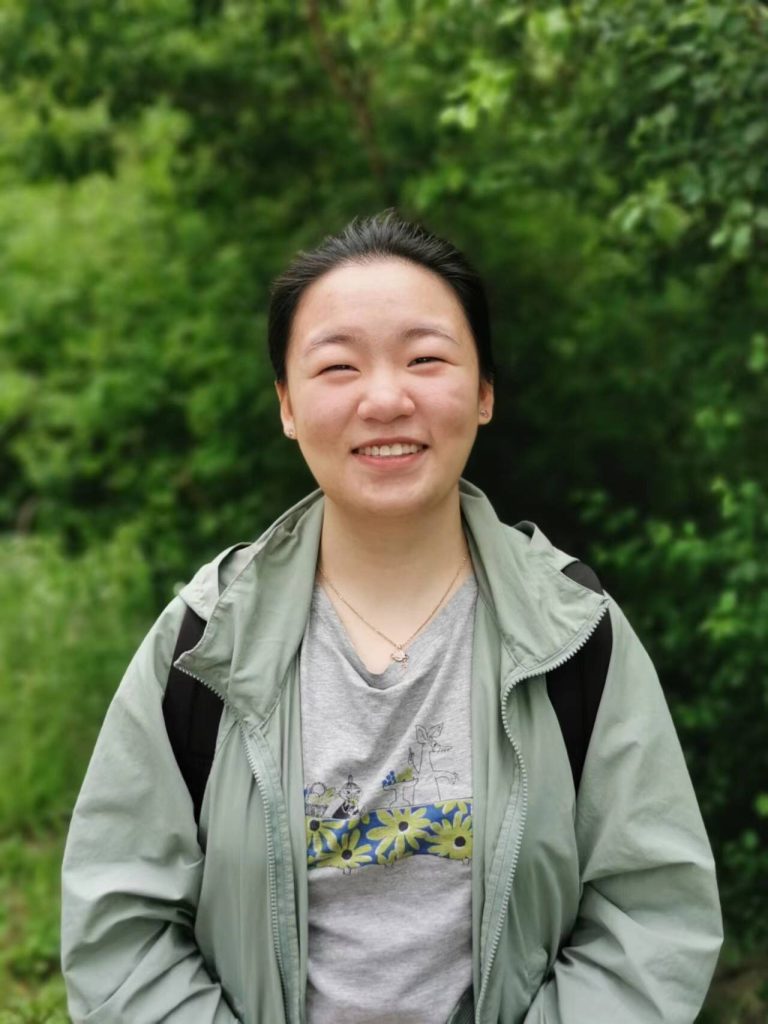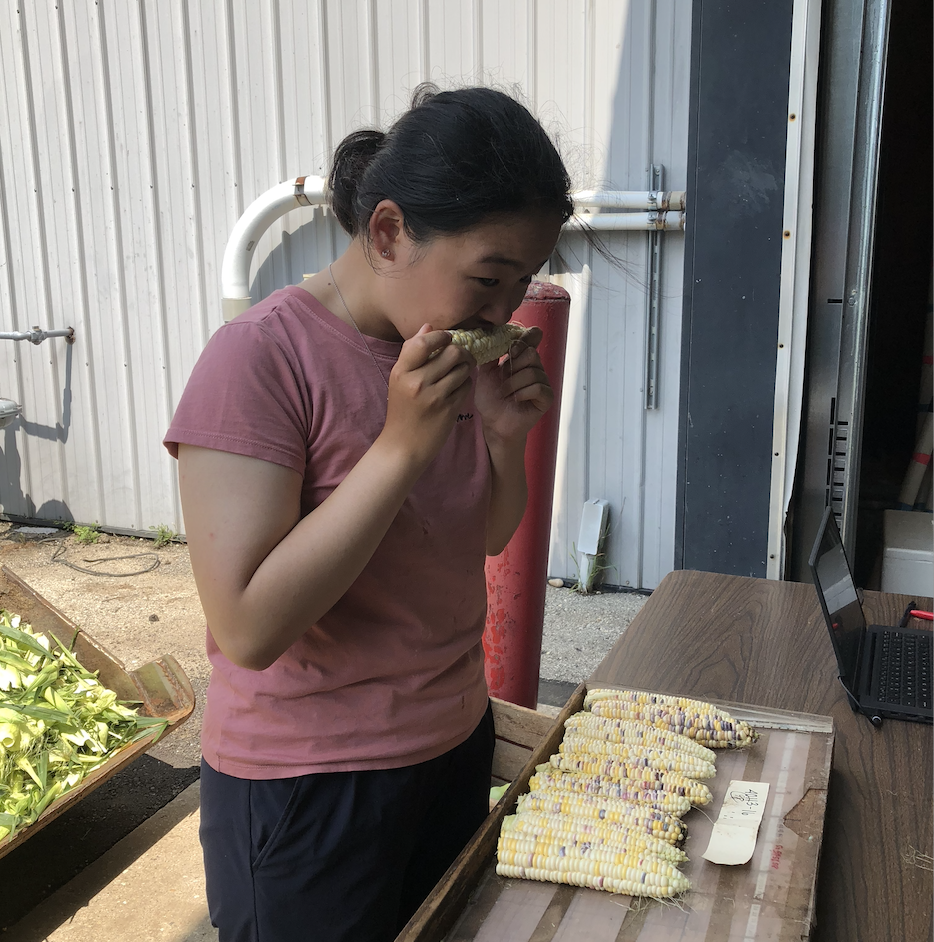Spring 2023 grad: Chenxin Luo gained experience through research, friendships through orgs

Chenxin Luo, who grew up in Nanjing, China, will be graduating this spring with a bachelor’s degree. She is majoring in both agronomy and in genetics and genomics. In this Q&A, she talks about doing meaningful research as an undergrad, being a mentee and then mentor in the Women in Science & Engineering learning community, and her experiences as a member of the Badger Crops Club.
Why did you choose your major?
I came to UW-Madison choosing to major in agronomy. My family has some agricultural background and I always want to work with crops. During my freshman year, two entry-level courses I took – Agronomy 100 and Biology 152 – made me very interested in plant genetics. Upon discussing with my advisor, I added genetics as my second major.
What other activities were you involved in?
I am a member and treasurer of the Badger Crops Club. This is a student organization for undergrads and grad students who have a general interest in agriculture. We invited guest speakers, planned field tours, promoted scholarships, and did fun things together. We also revived the Badger Crops Team, which hadn’t been actively competing for about 15 years. The Badger Crops Team participated in a national-level crop judging contest (it’s like an applied agriculture competition) and last October we were ranked 1st nation-wide in the Student of Agriculture, Soil Science, and Environmental Science (SASES) Crop Judging showcase.
I am a peer mentor of the Women in Science and Engineering (WISE) learning community. I was a member of it when I was a freshman and WISE helped me quickly adapt to living and studying here. I became a peer mentor in my junior year and wanted to keep contributing to this society. I built up mentorships with 20 WISE residents during the past two years, helping them with course selection, on-campus internship/research options, and general campus engagement.

I am currently conducting my senior honor thesis in the Masson lab, in the Department of Genetics. The Masson lab focuses on plant root behavior under gravity, biotic, and abiotic simulations. Part of our program is funded by NASA, so we want to explore the possibility of plants growing in microgravity, a.k.a. space. For my research project, I am helping to optimize an agrobacterium-mediated transformation protocol on Brachypodium. Basically, it’s a way to insert DNA into plant cells and mass regenerate plants with that gene. We hope to apply this technique to the lab’s future research.
Before I joined the Masson lab, I worked for two semesters for Bill Tracy on his “Team Sweet,” which does research on sweet corn improvement. I had wonderful experience in both labs!
What are your future academic and/or career plans – short-term and long-term?
I am going to Wageningen University & Research in the Netherlands for a master’s degree. I will focus on molecular plant breeding and pathology, which is exactly what I want to learn. Actually, two years ago, I thought about applying to CALS’s student exchange program with Wageningen, but unfortunately bumped into the covid outbreak. So now it’s like a dream come true!
What were the most valuable/meaningful college experiences you had?
Being a part of Badger Crops Club was the most valuable experience. I have formed very strong friendships with local students who come from farming/dairy backgrounds. They taught me so much about the knowledge I never knew before, since we farm in such different ways [in China and the U.S]. It strengthened my determination to devote myself to a more sustainable, resilient, and culturally respectful agricultural system.
When you think about your time here as a student, what are you proud of?
I am really proud of myself for engaging in real science research as an undergraduate. So many great professors are willing to offer opportunities, and more importantly, trust students’ ability to conduct rigorous research and make a difference in their program. In the two labs I’ve worked in, I was educated with care and given the freedom to explore.
Do you have any advice you’d like to share with CALS students?
When some ideas pop up in your brain, it’s always good to reach out and try first, rather than thinking about the potential difficulties. Don’t scare yourself. ; )

